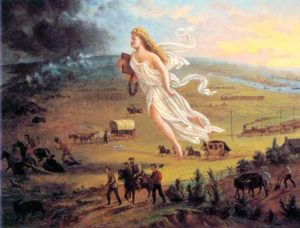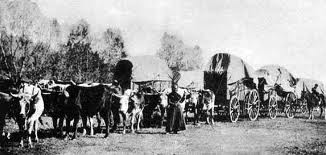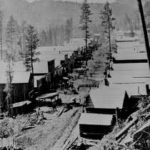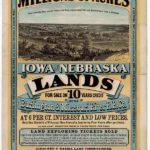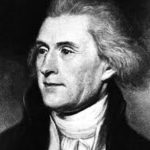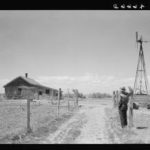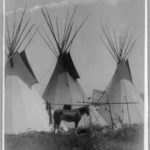People today often find it hard to understand how Americans and their government could have treated native peoples so badly. Americans were not alone in thinking that their particular race/religion/country/form of government/, etc., was superior to the rest of the world’s, but they also operated under a mentality that gave them seemingly rational reasons for pushing native peoples out of their way.
Americans who had thrown off a powerful government during the Revolutionary War and then acquired nearly endless natural resources afterward, began to believe their country was truly special. Many people felt that America was a unique country with specific blessings in the form of a democratic government, bountiful natural resources, and a spiritual mission revitalized during the Second Great Awakening.
The growing idea that the American people had been destined by God to spread across the continent created a mindset that newspaper editor, John O’Sullivan, called manifest destiny in 1845. The idea of manifest destiny was relatively fluid, rather than specific planks in an ordered religious or political platform. However, the belief that Americans should spread their country’s liberty, self-government, and moral sensibilities from sea to sea, remained solid.
This idea of destiny grew stronger at a time when Americans also began to feel that everyone had an equal chance for success on the vast tracts of land comprising the Louisiana Purchase and beyond. If he worked hard and used skill, a man had only to move westward to find all he needed to make his living or his fortune–that is, if he were (primarily) a male Christian descended from white European stock. If Indian heathens stood in the way, they would need to move, convert, or both. The idea of manifest destiny does not explain all American behavior at this time, nor excuse it, but this philosophy did create a mindset that allowed settlers to feel that native peoples and their cultures did not matter overmuch.
